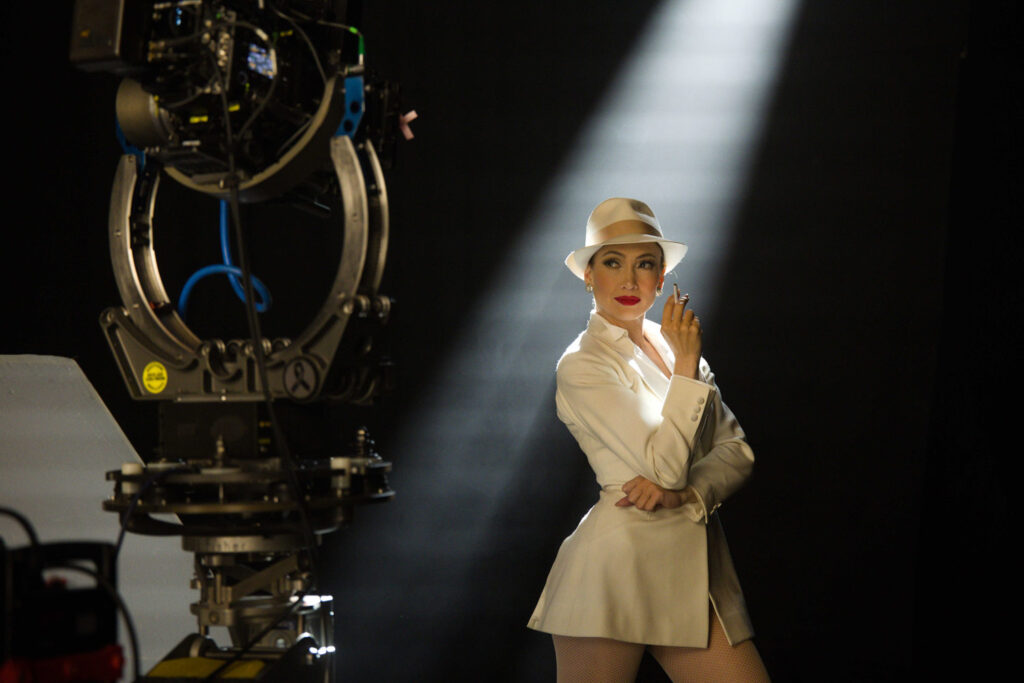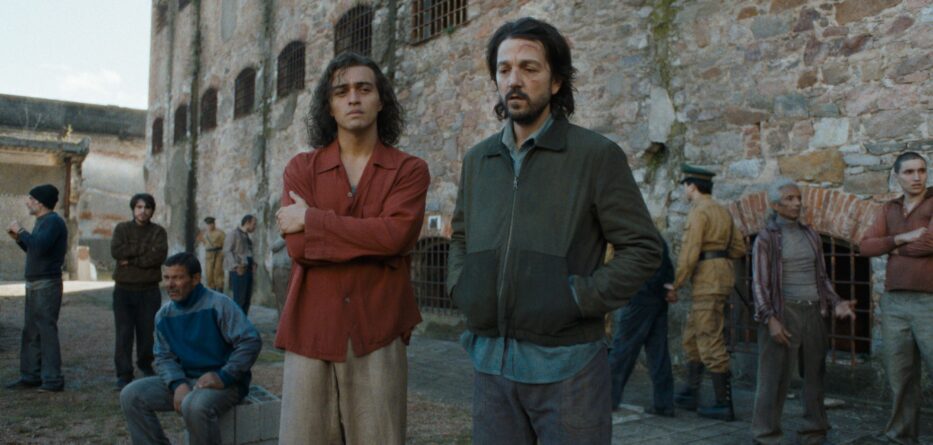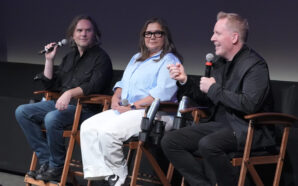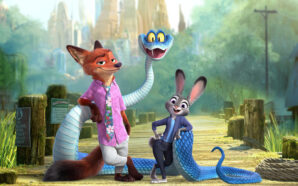Arturo Hilario
El Observador
Mexican actor Bruno Bichir is passionate about film and theatre, and when asked, he enthusiastically expresses his admiration for the arts that have given him an illustrious career in film, television and theatre.
Beginning his career at the age of five, Bichir has been shaped by the performing arts and comes from a famous family of actors who also live and breathe it. From his parents, Maricruz Nájera and Alejandro Bichir, to his two older brothers, Demián and Odiseo, they have occasionally worked together and, humorously, at the 2003 MTV Movie Awards Mexico all three brothers were nominated for Mejor Bichir en sus películas.
So, with such a community of artists in his family and a prolific resume, it’s only fitting that he’s excited to reflect on his new project: being part of the Bill Condon-directed movie-musical, Kiss of the Spider Woman, which opens in theatres on October 10th.
Kiss of the Spider Woman is a fantasy drama about two imprisoned political prisoners who forge an unlikely bond by dipping into their imaginations and creating a dazzling Hollywood musical to escape their situation and, at times, confront their realities.
Based on the acclaimed 1976 novel of the same name by Argentine writer Manuel Puig and the Tony Award-winning Broadway musical by playwright Terrence McNally (Master Class, Ragtime), it was composed by John Kander and Fred Ebb, the creative duo behind Cabaret and Chicago.
Alongside Bruno Bichir, Jennifer Lopez, Diego Luna and Tonatiuh star in Kiss of the Spider Woman with a visually dazzling aesthetic that evokes classic Broadway plays and the golden age of Hollywood.
I recently had the opportunity to speak candidly with Bichir and find out why he connects so much with Kiss of the Spider Woman, why the film is an entertainment that also warns about current political risks, and why audiences need to enjoy this film alongside the magic of cinema.
Why did you want to take on this role and be part of this project, what attracted you to the story of Kiss of the Spider Woman?
Look, I am convinced that I don’t choose my work, that my work chooses me. And I could give you examples of practically everything I have done, including personal projects that I push or develop or that I am the driving force behind. Even those projects I say: Why am I doing it? Because the project is telling me to do it.
On this occasion, I’ve always had a, I don’t know if fascination is the word, but a genuine interest in unravelling the universe of Kiss of the Spider Woman, from the novel, going through the play and staying there for a long time, thinking about that play, wanting to produce it, direct it, act it, doing some workshops, understanding, studying the text, doing analysis.
It’s been left on the back burner, but I’m surprised that I’ve suddenly been called up. I didn’t even have it on my radar that this film was going to be made. I didn’t know the play, the musical comedy that was made. I knew, of course, about Héctor Babenco’s film, which I think is extraordinary, and the performance of the three [main actors], but very specifically William Hurt, who is unbelievable, supernatural. If you haven’t seen it, see it in a hurry.

Molina (Tonatiuh) and Valentín (Diego Luna) are prisoners in an Argentine penitentiary who come together through fantastical Hollywood musical fantasies to escape the torture and dread of their imprisonment in the Bill Condon directed movie musical Kiss of the Spider Woman. Photo Credit: Roadside Attractions
And then, as icing on the cake 20 years ago, and just now, 20 years later, I’m back in the theatre playing the character of the master of ceremonies in Cabaret, in the musical, and it turns out that the lyrics and the music are written by the same creators of Kiss of the Spider Woman, who do Cabaret, do Chicago and then do Kiss of the Spider Woman. And it seems to me that it’s all connected, it’s even creepy, in a way.
The only thing that left me a little uneasy was that my character was the only one who wasn’t going to sing or dance. When they called me up, said, “Hey, Kiss of the Spider Woman,” I said, “Wow,” my head flew off. And then I said, “Gee, no, because I guess in real terms I don’t think I can play either lead anymore and there’s no way I’m playing the girl. So, I don’t know what they want me to do.”
“Yes, no, your character is the only one who doesn’t sing and dance, the only one. The only one. How do you think?” But he’s a character who mostly navigates in the novel. He exists more in the play, you don’t see him, which is this man who represents all the anomaly, I would say, all the toxicity, all the anomaly, all the upside-down world of these oppressive systems of our hurting Latin America, especially in the 60s, 70s, 80s.
If you can see it in a theater, it’s wonderful to share it with people you don’t know, at the same time on a giant screen, with extraordinary sound, in a seat, in the darkness of that event. The cinematic event alone seems beautiful to me.
-Damian Bichir
And so, that’s what makes me say, of course, where I sign or whatever you want. First of all, because being in a musical, being the only one who doesn’t sing, makes you very special, and I celebrate that. I mean, look, precisely because of the contrast and because of one of these things, it’s not like the others, like Sesame Street, it makes you look at that. You say, “Wow, it’s funny that it doesn’t sing or dance”.
There is a certain attention to what is being told with that piece of history. And that makes me very happy. But where my work really rests is in what I’m telling you, to be a mirror and a reminder that we shouldn’t tread those waters again, those troubled waters, to navigate them. We need to get as far away from a circumstance like that as possible. And we are seeing that the world is on fire and falling apart around us.
The United States is going through a very particular, convulsive moment, I would say. Moreover, with great supporters and great detractors of this system. In other words, there are unbelievable polarities, just like in our Latin American countries, with those oppressive systems, where, of course, many people were very happy with that and other people were being tortured in the most violent, aggressive, inhuman ways possible.
So, those contrasts, summed up in my character is what attracted me the most, because my character is an accumulation of ambiguities. You don’t know what he’s really thinking or what he really wants or what he’s really going to achieve. And he gets it all. He’s the devil. He’s a well groomed, well behaved man who’s doing his job. Somebody pays him, we don’t know who he obeys. There’s always someone on top. We don’t really know which chess piece is on the chessboard and yet he’s pulling the strings.
And all this matters enormously to me and I am delighted that someone in the United States, at a time when it seems that frivolity and obscurity are going to win, that someone decides, like many others, to be a dissident and talk about the deep, profound issues that disturb us human beings, seems to me to be exceptional.
I find it exceptional that there is a musical that is bittersweet, that is high contrast, that is very happy where it is happy, but very sad where it is sad. In other words, it has no half measures. I think these are my considerations, but that makes me very proud of a project like this.
Regardless of the fact that I’ve done everything. I mean, I can happily do a comedy without any major pretensions, but it’s certainly an important moment to give a voice to those who don’t have a voice and to put my finger on the problem and say, “Wow, let’s not forget that we’re very close to that and that it’s not enough to fantasize, it’s not enough to isolate ourselves, it’s not enough to escape”. Sooner or later, reality blows up in our face and we have to face it, no matter how much fun we have when we sing in the shower.
The musical, when it was in New York in the 90s, didn’t last long on stage, but it did win awards and accolades. And now decades later, it’s coming to the cinema in a new form and I wanted to know what you think about the musicals that are being adapted and coming out in cinemas. Do you think it’s important to have these options so that the general public can experience these stories in the cinema if they can’t go to a theatre stage to see them?
Of course. Well, right from the start, that there is a record of that nature, I’ve always been fascinated by musicals. Of course, once I got past childhood, I became interested in other subjects. In the beginning, I was very happy with musical comedy that doesn’t seek much more than to entertain, Singin’ in the Rain, My Fair Lady, Boys and Girls. But then you grow up and it turns out that you have the opportunity to deal with more information.
And so, now I really appreciate musicals that tell darker, wavier, more important, more transcendent, more conscious stories. Me and the musical, I love it, I adore it and I hope I can do it very, very much. But on the other hand, you’re right, it’s a way of seeing what you can’t see on stage.
But on the other hand, too, it’s a very propitious ground for cinematography. Look, and Bill is involved here, but I love the musical Chicago, I love it, I love seeing it on stage, I’ve seen it many times, I love it. But how did I love the film? And it’s because of his script, Bill Condon’s script. I love Hair, which was made by Milos Forman, and it’s an extraordinary musical.
I like musicals a lot, but cinema has that ease, that happiness. It’s more passable to see someone on a screen start to sing and dance. Suddenly you’re on a stage like that and someone starts singing and dancing and it’s like weird, I don’t know. I don’t know, I don’t think so anymore. I’ve just finished a season of theatre, then of musicals, so I think it’s beautiful.
And I think it’s important that we tell transcendent stories through music, music is very easy. Music vibrates, it is in another frequency, resonation or resonance, that of sound. This is not the same as what I am telling you, as if I do it to you in a C flat. Even if you don’t want to, I know, something happens with music and sound in human beings. It’s enough to put one note with another to create an emotion as simple as that, and it seems like pure mathematics, and in fact it is, but it’s still a mystery. So the combination of that is what seems plausible to me.
Thank you very much, Bruno. And finally, why do you recommend that people go to see Kiss of the Spider Woman?
First of all because, as they say: Come on, it’s beautiful to shut yourself away, if you can see it in a cinema, it’s beautiful to share with people you don’t know, at the same time on a giant screen, with extraordinary sound, in an armchair, in the darkness of this event. The cinematic event alone seems to me to be beautiful. It is one of the most beautiful things that human beings have created.
But this film in particular, you are going to have fun, which is first of all, you are going to be entertained, you are going to have a good time, that’s what I mean. Why? Because it’s beautiful, but you’re also going to reflect. And the combination seems to me to be the most important thing there can be in art, that there can be aesthetics, beauty, that tells a story, but that also moves you, moves you and then leaves you reflecting, that leaves you spinning and that makes you ask questions, that what you are seeing asks you questions and that you try to answer and that you start a conversation, even if it’s personal.
And if you can develop it with more people, even better. The best thing that can happen to any spectator and to any stage project is that you talk about it afterwards, that you go to dinner or that the next day you talk about it and say, “Hey, by the way, I saw and I think this, and besides, this is happening right now and I think it’s very pertinent”.
And that is what people will find in this film. They will be moved, they will have fun, they will even laugh, they will have a good time and they will touch the heartstrings, other registers that I think are important at this time in the world.





